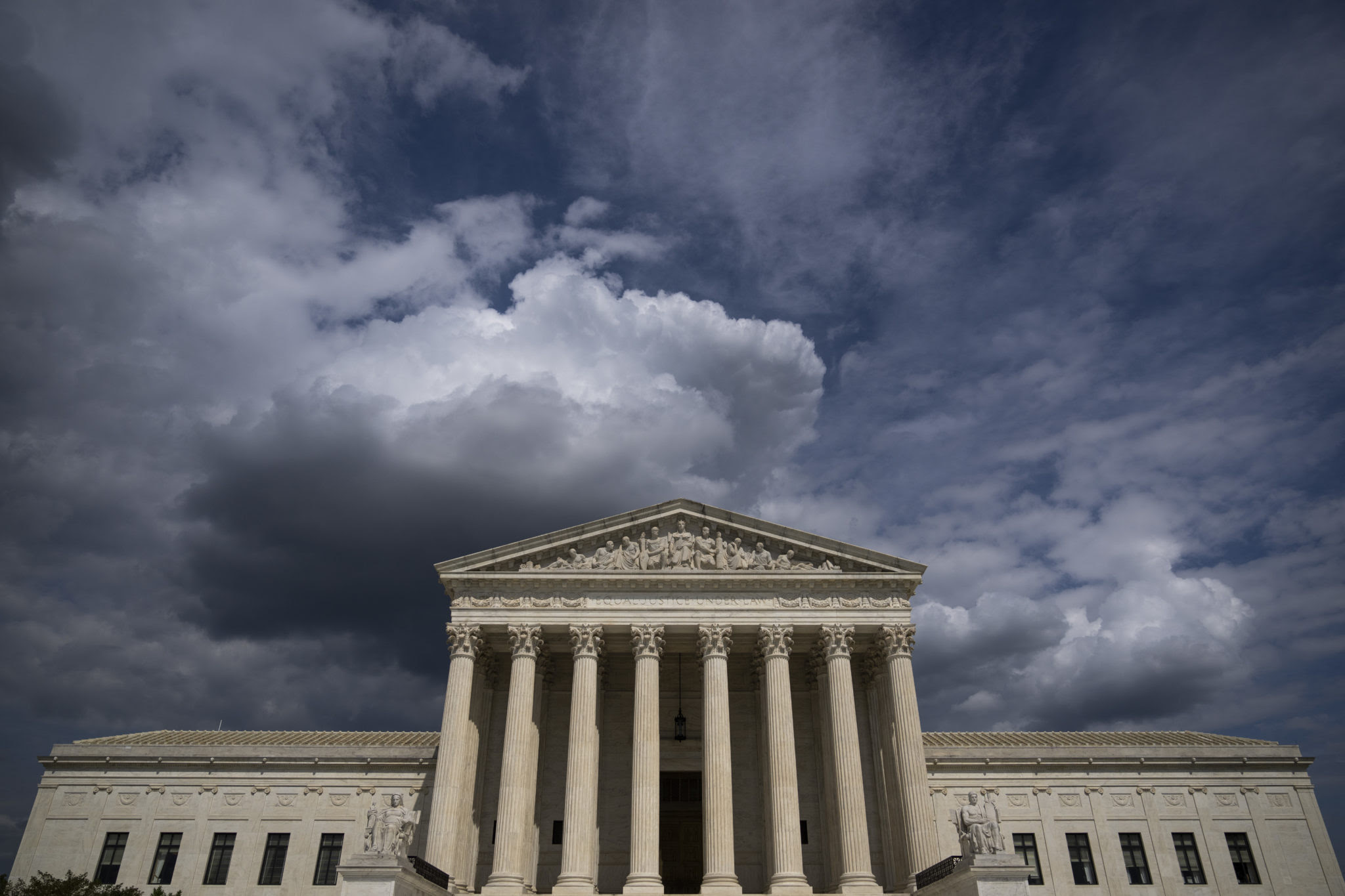
By Mike Kapic – July 27, 2023
I’m sure you remember the 1967 movie, The Dirty Dozen with Lee Marvin and an ensemble of supporting cast including Ernest Borgnine, Charles Bronson, Jim Brown, John Cassavetes, Richard Jaeckel, George Kennedy, Ralph Meeker, Robert Ryan, Trini Lopez, Telly Savalas, Donald Sutherland, Clint Walker and Robert Webber.

The movie was set in 1944 World War II as twelve commandos in the military penal system are given the opportunity to serve their country with valor just prior to the D-Day landings. They were portrayed as bad, but very capable individuals in their specific arts of war. As the story developed, I remember shifting my disgust away from the characters introduced and rooting for their success as they fought the bad guys.
That was not the case for the authors of another story which used a similar title to reflect some of the worst atrocities inflicted on We the People of the United States. ‘The Dirty Dozen: How Twelve Supreme Court Cases Radically Expanded Government and Eroded Freedom’ By Robert Levy and William Mellor tell a very different story.
I’ve heard constitutional scholars claim that if we could repair only the commerce and welfare clauses of our Constitution, we’d resolve close to ninety percent of America’s problems.
Here is a brief outline of each of the chapters of the Dirty Dozen together with their associated cases, constitutional provisions, and a preview of what is at stake from each. Notice what comes first and second.
Part I: Expanding Government
- Promoting the General Welfare—Helvering v. Davis Article I, sec. 8 (General Welfare Clause): Congress can tax and spend to promote the general welfare, said the Court. That opened the floodgates, through which the redistributive state was ready to pour—taking money from some, giving it to others, without any meaningful constitutional constraints.
- Regulating Interstate Commerce—Wickard v. Filburn Article I, sec. 8 (Commerce Clause): Can Congress’s power to regulate interstate commerce be extended to activities that are not interstate, not commerce, and not even regulated but prohibited? Apparently so.
- Rescinding Private Contracts—Home Building & Loan Association v. Blaisdell Article I, sec. 10 (Contracts Clause): “No State shall… pass any… Law impairing the Obligation of Contracts,” says the Constitution. Clear enough? Not for the Supreme Court, which upheld a Minnesota statute postponing mortgage payments for financially troubled homeowners. Never mind the contract between the lender and the customer.
- Lawmaking by Administrative Agencies—Whitman v. American Trucking Associations, Inc. Article I, sec. 1 (Non-Delegation Doctrine): If Congress passes an oppressive law, the voters can respond by throwing the bums out. But if the law is murky, and Congress lets an unelected regulatory agency fill in the oppressive details, the courts won’t do much about it, and the voters can’t.
Part Two: Eroding Freedom
- Campaign Finance Reform and Free Speech—McConnell v. Federal Election Commission First Amendment (Free Speech): In pursuit of the quixotic idea that money and elections should not mix, the Court has curtailed our most basic expressive right: to support or criticize political candidates.
- Gun Owners’ Rights—United States v. Miller Second Amendment (Keep and Bear Arms): Almost seven decades ago the Supreme Court established a legal regime that has been interpreted by appellate courts across the country to mean that individuals do not have an individual right to possess firearms.
- Civil Liberties Versus National Security—Korematsu v. United States Fifth Amendment (Due Process Clause): Guarantees of liberty, fair treatment, and equal protection of the laws may be waived during wartime—even if American citizens are arrested and imprisoned without charge indefinitely.
- Asset Forfeiture Without Due Process—Bennis v. Michigan Fifth and Fourteenth Amendments (Due Process Clauses): It is not bad enough that your husband engages in a sexual act with a prostitute in the front seat of your car. The Court says that the criminal offense extends to the car itself, which the government can seize, and you cannot recover either the car or its value.
- Eminent Domain for Private Use—Kelo v. City of New London Fifth Amendment (Public Use Doctrine): Suppose you have a cherished home in which you’ve lived for many years. Along comes a private developer who promises the government more jobs and higher taxes if your home is turned over to him. Do you think your property is safe from the bulldozer? Think again.
- Taking Property by Regulation—Penn Central Transport Co. v. New York Fifth Amendment (Takings Clause): When the value of your property plummets due to government regulations, you won’t be compensated unless the regulations go “too far.” How far is too far? Evidently, Penn Central’s $150 million loss wasn’t far enough.
- Earning an Honest Living—United States v. Carolene Products Ninth Amendment (Unenumerated Rights): Do your economic liberties include a right to form your own business without unwarranted government restrictions? Not if the legislature decides to protect your rivals; then the courts pitch in and rubber-stamp the anticompetitive regulations.
- Equal Protection and Racial Preferences—Grutter v. Bollinger Fourteenth Amendment (Equal Protection Clause): No racial discrimination. That is the rule—unless, of course, a state university uses race as a mere “plus factor,” part of a “holistic” approach to attain diversity. Then somehow racial preferences are not discriminatory.
Those are the cases—appalling examples of Supreme Court gaffes that are continuing today. This list is the tip of the iceberg when you consider others such as the growth of the administrative state due to the Chevron decision with its ‘deference doctrine.’ We owe it to our children and their progeny to educate ourselves, our families, neighbors, and coworkers.
The Framers of the most unique Nation God created on earth included a tool for we the people to use, in union with their states, if Americas government should approach the tyranny as these cases suggest. The Framers included the second clause of Article V in the Constitution to allow our States to remedy our ailments.
But the federal government has intimidated the states to the point that they are afraid to use it. The Constitution gives the States the power and authority to amend and ratify changes to the U.S. Constitution, but they are afraid to use it. We the people must Stand Up, Show Up & Speak Up to encourage and help our state legislators to implement our Constitutional rights to stop the abuse.
Our States have to limit our DC government with our children’s growing debt inheritance, term limits, draining the admin state, for example. And another, referred to as the Countermand or Power Check amendment would allow the states to overrule a Supreme Court ruling the people and their States didn’t support. For example, IF an amendment like this been in effect in the 1970s, Roe vs. Wade would have been long gone and 50 million babies wouldn’t have lost their lives.
That’s just one example. Learn more at Hunt For Liberty and Let Us Vote For FRA and Article V Taskforce how you can help us repair what ails America.

Under one proposed Constitutional amendment, a 3/5 majority of the state legislatures would have the power to vacate, in whole or in part, any SCOTUS ruling. Our state legislatures, acting for We the People, could clean up the messes above. https://bityl.co/CKhd